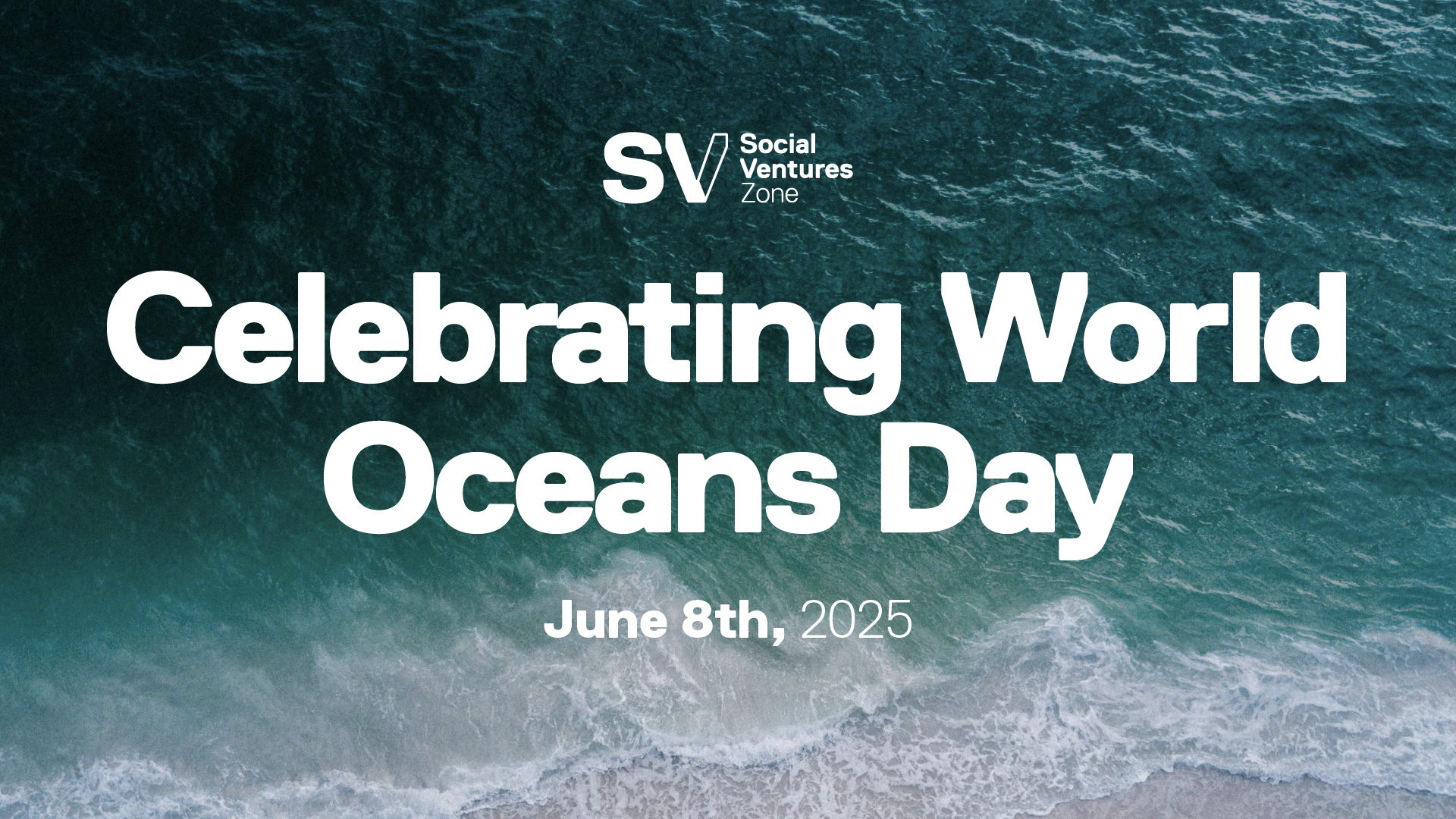Celebrate World Oceans Day 2025 with the SVZ
By: Nika Bakhtiari
June 8th, 2025
To mark World Oceans Day on June 8th, we are highlighting the innovative efforts of SVZ incubated startups dedicated to ocean conservation, as well as the broader potential of ocean-rooted social solutions. Three of our startups—Seapax, SeaFoam, and Project CAHTA— are actively researching and prototyping solutions aimed at reducing plastic pollution, lowering carbon emissions, and promoting sustainable practices in industries affecting our world's oceans.
The fashion industry, although glamorous, contributes significantly to plastic pollution, generating an estimated 180 billion single-use (external link) plastic bags each year. When microfibres, packaging scraps, and garment trims are included, roughly 8.3 million tonnes of plastic (external link) from the apparel sector escape into the environment each year. Microplastics from fashion waste have been found in fish we eat, drinking water, and even the human brain, posing unknown long-term health risks and impacts on ecosystems. Seapax is addressing this issue by introducing a sustainable alternative to plastic packaging, made from responsibly sourced seaweed from farms. This innovative packaging is designed to degrade naturally in soil and water, offering a cradle-to-cradle solution that minimizes environmental impact.
Seapax aims to replace the often-overlooked single-use plastics prevalent in the fashion logistics industry. By integrating seaweed-based materials into packaging, they're not only reducing plastic waste but also promoting a sustainable alternative that aligns with the industry's growing eco-consciousness.
SeaFoam is addressing the construction industry's substantial carbon footprint by developing building insulation made from seaweed. An often overlooked area which contributes to global emissions (external link) is the embodied carbon of construction and building materials. This includes the emissions resulting from the extraction, manufacturing, transportation, installation, and disposal of products such as steel, concrete, insulation, drywall, and other materials.
SeaFoam's seaweed-based insulation aims to provide effective thermal properties and store carbon, turning buildings into carbon sinks. Seaweed is a powerhouse. It absorbs CO₂ faster than any land plant, doesn’t require freshwater, and helps regenerate marine ecosystems. It also provides sustainable livelihoods for fragile coastal communities. Seaweed's unique properties make it an ideal insulation material, turning the $60-billion global insulation market into a highly scalable carbon drawdown opportunity.
Co-founder Chloe Doesburg is also a participant in Women4Climate Toronto (external link) , a mentorship program supporting female leaders in climate innovation. Through mentoring, training, and a pitch competition, the program empowers women to develop high-impact environmental solutions for Toronto.
Project CAHTA is developing a sustainable fishing method that reduces bycatch (the unintentional capture of non-target species), minimizes seafloor disruption, and thereby mitigates carbon emissions. Traditional bottom trawling methods are known for their environmental impact, including the unintentional capture of non-target species and the release of carbon stored in seabed sediments. A 2024 study published in Frontiers in Marine Science estimates that bottom trawling releases approximately 370 million metric tons of carbon dioxide annually (external link) , with about 55–60% of this carbon entering the atmosphere within nine years. Project CAHTA is working on developing an approach that uses specific sound waves to attract targeted fish species into nets, eliminating the need for heavy, seabed-damaging equipment.
